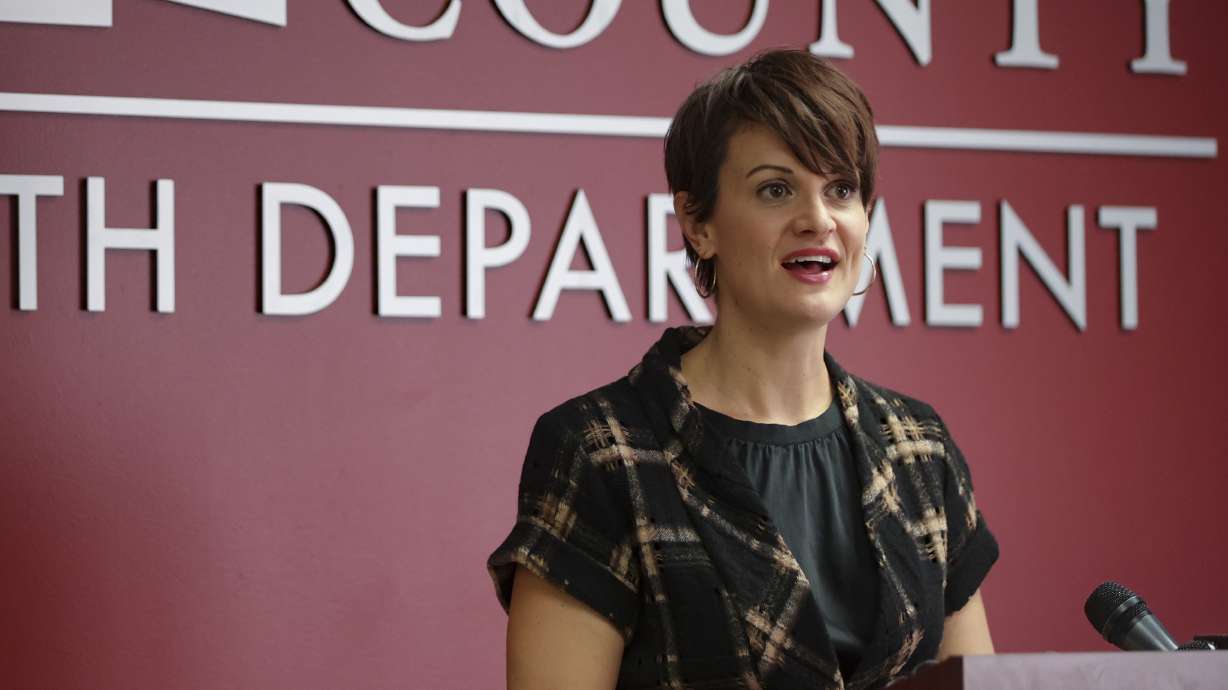Estimated read time: 3-4 minutes
This archived news story is available only for your personal, non-commercial use. Information in the story may be outdated or superseded by additional information. Reading or replaying the story in its archived form does not constitute a republication of the story.
SALT LAKE CITY — Health officials in Salt Lake County say two people who are living in the same home are considered probable cases of monkeypox.
The Salt Lake County Health Department announced Monday that the two people became symptomatic after traveling internationally earlier this month. Preliminary tests led health officials to believe the two have monkeypox, and Centers for Disease Control and Prevention testing will confirm later this week whether the two have the virus.
Utah public health agencies have not found additional exposure risks due to these two probable cases. Monkeypox does not spread easily from human to human, the health department said Monday, as the virus spreads primarily through direct contact with bodily fluids; though, transmission could occur after long amounts of face-to-face contact.
The county health department said Monday that county and state health departments were in the process of contacting anyone who may have been in close contact with the two suspected cases during their infectious period. Those who were in close contact should be notified by the end of Monday.
The two people who are suspected to have monkeypox are in isolation, and health officials said Monday they believe they do not currently present a risk to the public. Both are expected to fully recover, as health officials described their symptoms as a mild illness.
They are not contagious until they show symptoms. Typically, people infected with monkeypox begin showing symptoms between seven and 14 days after infection, though the days could range from five to 21 days, according to the health department.
Dr. Angela Dunn, executive director of the Salt Lake County Health Department, emphasized Monday that the virus is not a risk for the general public and monkeypox is not a reason for panic. But people who have recently traveled to places where monkeypox has been reported or have come into contact with someone with a rash should be aware and on the lookout for symptoms.
"This is not easily spread from human to human," Dunn said. "We are not talking about COVID here. It is really that direct contact with individuals who have monkeypox and that's how it's spreading right now. So for the general public, there's not a great risk."
Dunn said the monkeypox strain identified in confirmed cases originates in western Africa and tends to be a more mild version of monkeypox.
Monkeypox is a rare virus that is normally found in Africa, but the county health department said several cases have recently been identified in Europe and North America. Dunn said that Canada, Australia and Western Europe have seen monkeypox spread, though the total number of cases is around 100. Monkeypox cases have been also been identified in the United Kingdom, Portugal and Spain. One case was recently found in Boston.
"It's not anywhere near what we've experienced for COVID," Dunn said. "So I don't want people to panic, but those are areas of the world where it is currently spreading."
Symptoms typically include fever, headache, muscle ache and swollen lymph nodes. The virus also causes a rash that turns into fluid-filled lesions, or "pox," that eventually fall off and leave scars. Dunn said the fluid in the lesions is infectious if it comes in contact with another person.
Though there is no proven treatment for monkeypox, the CDC recommends frequent handwashing, avoiding contact with animals and avoiding people who have monkeypox symptoms as the most effective precautions for travelers.










